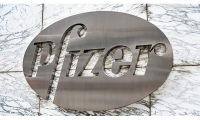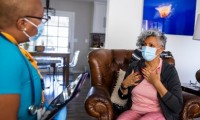-
Spit Test Detects Breast Cancer in Five Seconds
- Source: drugdu
- 110
- February 21, 2024
-
Xolair Approved by FDA as First Treatment for Multiple Food Allergies in Adult, Pediatric Patients
- Source: drugdu
- 172
- February 20, 2024
-
Study Advances Blood Tests for Psychiatric and Neurological Disorders
- Source: drugdu
- 140
- February 19, 2024
-
Regeneron and Sanofi’s Dupixent bags fifth drug label in Japan
- Source: drugdu
- 152
- February 19, 2024
-
MRC Laboratory of Medical Sciences worth £120m opens on ICL campus
- Source: https://pharmatimes.com/news/mrc-laboratory-of-medical-sciences-worth-120m-opens-on-icl-campus/
- 103
- February 14, 2024
-
Pfizer Teams With American Cancer Society to Reduce Cancer Care Disparities
- Source: drugdu
- 78
- February 8, 2024
-
Stalicla secures funds for late-stage assets amid CNS buzz
- Source: drugdu
- 104
- February 8, 2024
-
Valneva sells Ixchiq priority voucher for $103m to fuel R&D
- Source: drugdu
- 95
- February 7, 2024
-
Moderate kimchi intake linked to lower obesity rates, study shows
- Source: drugdu
- 88
- February 6, 2024
-
Usability challenges for at-home devices top ECRI’s 2024 hazards list
- Source: drugdu
- 94
- February 4, 2024
your submission has already been received.
OK
Subscribe
Please enter a valid Email address!
Submit
The most relevant industry news & insight will be sent to you every two weeks.













